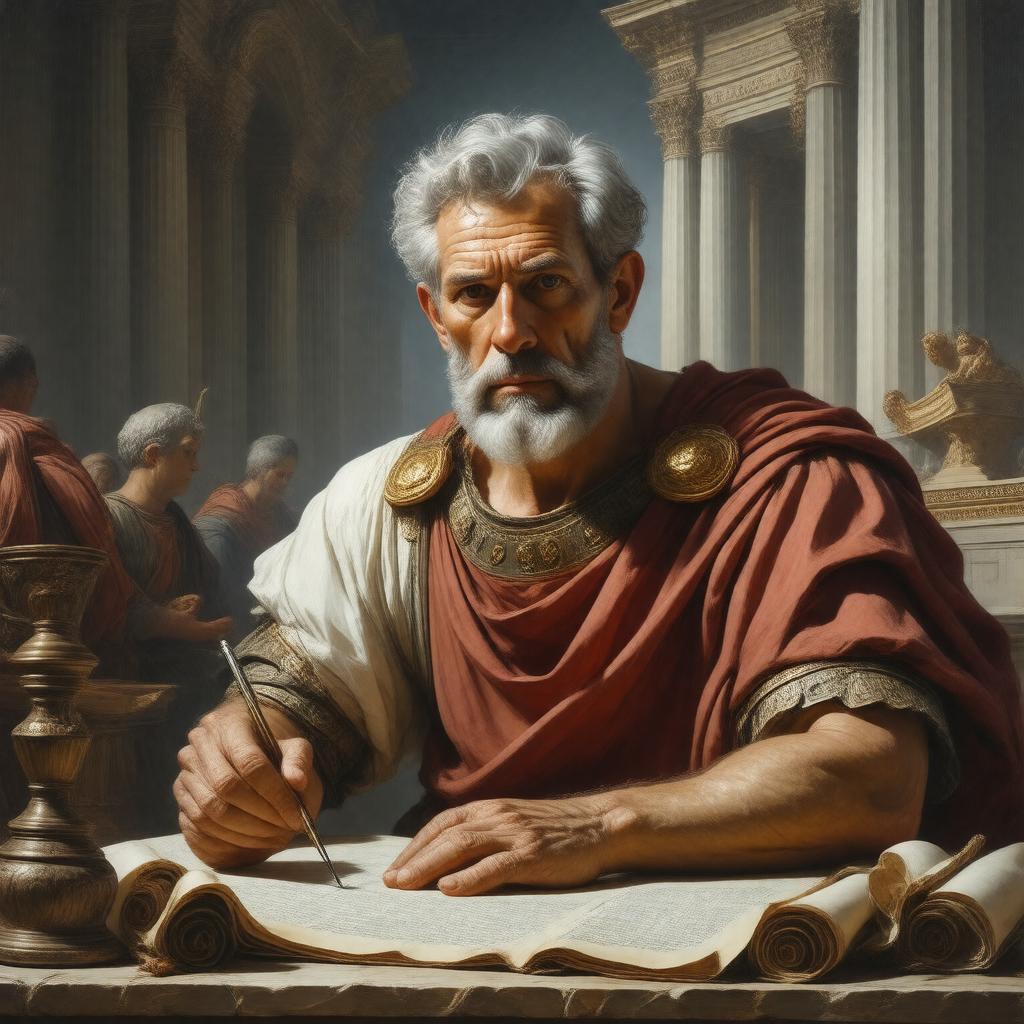Prompt
Generate an image of a mature, contemplative Roman man with a serious expression, sitting at a desk with a writing quill in hand, surrounded by scrolls and parchments, with a backdrop of ancient Roman architecture, representing Publius Cornelius Tacitus, a renowned Roman historian and senator, in a style reminiscent of classical Roman art.

